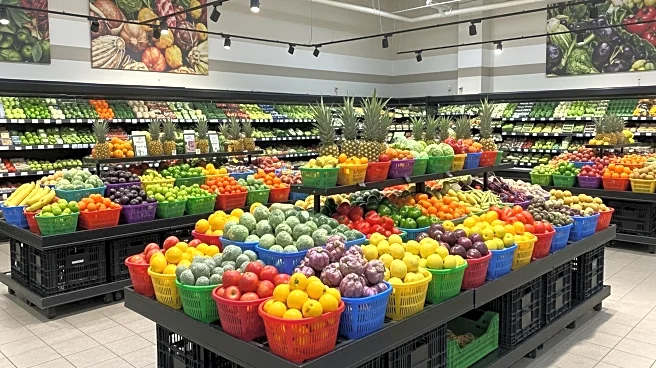What's Happening?
An independent grocery store, Richton Park Fresh Market, is set to open in the vacant space previously occupied by Save-A-Lot in Richton Park, Illinois. Owned by Sal Omer, the new store will offer fresh
produce, a butcher counter, and a deli, providing more services than the previous store. Village officials plan to offer tax incentives to ensure the store remains a full-service grocer. The store's location is strategically accessible, attracting commuters and residents from nearby areas. Construction work has begun, with plans to expand the kitchen for hot food options.
Why It's Important?
The opening of Richton Park Fresh Market addresses the community's need for accessible grocery options, particularly in areas affected by store closures. By providing fresh produce and expanded services, the store aims to improve health outcomes and quality of life for residents. The tax incentives offered by village officials reflect efforts to attract and retain grocery businesses in underserved areas, potentially driving economic development. This development highlights the challenges and opportunities in addressing food deserts and promoting community well-being.
What's Next?
As construction progresses, Richton Park Fresh Market is expected to open by the end of the year, offering residents improved access to groceries. The store's success may encourage similar initiatives in other areas facing grocery store closures. Village officials may continue to explore incentives to attract businesses that enhance community services. The store's opening could lead to increased foot traffic and economic activity in the area, benefiting local businesses and residents.
Beyond the Headlines
The establishment of Richton Park Fresh Market highlights broader issues related to food accessibility and economic disparities in suburban areas. By incentivizing grocery stores to open in underserved regions, communities can address health disparities and promote equitable access to nutritious foods. This development underscores the importance of strategic planning and collaboration between local governments and businesses to create sustainable solutions for food deserts. The focus on fresh produce and expanded services reflects efforts to enhance community health and well-being.










